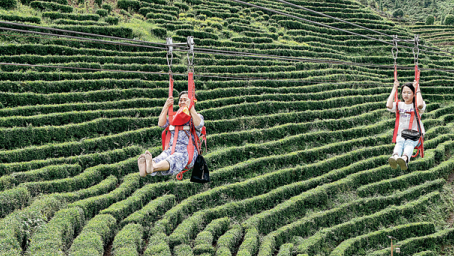

Since China's top legislature passed a law that promotes the national rural vitalization strategy, which came into force on June 1 last year, tourism operators have also made inroads into rural development, and play an increasingly important role in improving villagers' lives.
The law features provisions ranging from attracting talent and boosting rural industries, to preserving ecology.
Liang Jianzhang, co-founder of China's major online travel agency, Trip.com Group, believes opportunities for homestay development lie in the rural area.
"Last year marked the beginning of the 14th Five-Year Plan (2021-25), and rural vitalization's strategic position is increasingly prominent," Liang says.
"I believe rural tourism will be a golden key to rural vitalization."
Since March last year, the agency has developed eight rural retreats in Anhui, Henan, Jiangxi and Hunan provinces, as well as the Xinjiang Uygur autonomous region.
The first one, at Dawan village, Anhui province, began operations on July 3 and the rural resorts proved popular among travelers during the National Day holiday in October.
Some reported occupancy rates of more than 90 percent up to 15 days ahead of the holiday, according to the agency.
In Xinjiang, the facility in Hemu village, Burqin county in Altay, enables travelers to commune with nature through the vast grasslands that are surrounded by mountain ranges and are imbued with a strong nomadic culture.
The facility features five courtyards and 11 homestays and includes a garden area of more than 10,000 square meters. The company helped locals to renovate their houses for tourism purposes, secure tour-service jobs and sell their farm produce.